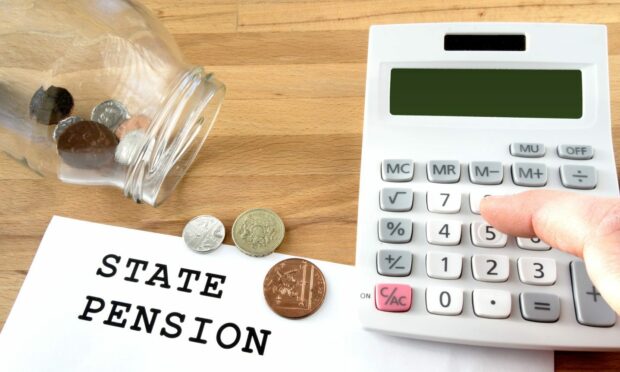The UK state retirement age could rise to 68 by the end of the 2030s according to reports, affecting everyone currently aged 54 and under.
It’s a move which would prove costly for north and north-east residents who will need to work for longer before becoming entitled to the state pension, which means they need to stretch their savings that little bit further.
What is the current age you can collect your pension?
Under the current law, the state pension age will rise from 66 to 67 by 2028, and then 68 between 2044 and 2046.
However, the government is considering making the change even earlier, with some reports citing a rise in state pension age to 68 by 2034.
The outcome of the UK Government’s second review of the state pension age is due to be published before the deadline on May 7.
The Department for Work and Pensions (DWP) said that no decision has been taken on changes to the state pension age.
Two further increases currently set out in legislation indicate a gradual rise to 67 for those born on or after April 5, 1960 and a rise to 68 between 2044 and 2046 for those born on or after April 5, 1977.
Why is the state pension age likely to be pushed back?
State pension age is regularly reviewed to make sure that it is affordable and fair as people are living longer and spending a greater proportion of their adult life in retirement than in previous years.
Paul Gibson, managing director of Banchory-based Granite Financial Planning, says a delay in the state pension is both good news and bad – and always controversial.
He said: “Mention the words “state pension” on Twitter and then stand back. People have very polarised opinions on the matter.
“It is increasingly likely that the state pension age will be pushed back further at some point. People are generally living longer which is good news, but their income needs to stretch even longer which is the bad news.”
He added: “In France plans to raise the state pension age from 62 to 64 are likely to lead to civil unrest. In the UK I suspect many more will take to Twitter to raise their grievances.”
In France plans to raise the state pension age from 62 to 64 are likely to lead to civil unrest.”
Meanwhile government safeguards on pensions are also getting more expensive which might need to change.
The government’s “triple lock” on the state pension — which promises to increase the payment every spring in line with the highest of the previous September’s inflation, wage growth or 2.5% — is expected to cost the Treasury an additional £11bn this April.
Mr Gibson added: “The pensions ‘triple lock’ has resulted in state pensions increasing significantly in recent years but now may be the time to review this.”
What does it mean for you?
Jenny Madhoo, founder and creator of SpringGen, a financial advice platform for Millennials and Gen Zers, believes it’s never been more “crucial” for younger people to look ahead to the future.
She said: “It can often seem overwhelming and an indisputable fact everyone will be working longer, but planning is essential and makes a huge difference.
“Those fortunate enough to be in a career with good progression and earning potential would be well-advised not to rely on the state pension when planning for their post-working lives.
“Instead, pay attention to the benefits available through your employer and begin optimising them as early as possible.”
What should you do about your pension?
Ms Madhoo believes a personal pension is something everyone should look to invest in but researching and exploring the best option is important.
She said: “While it can be tempting to put it off, diligent personal pension planning will pay dividends later, so don’t be tempted to neglect it.
“It’s also important to be savvy about how to maximise your employer’s contributions to your pension. Auto-enrolment into a workplace scheme is unlikely to suffice for a comfortable lifestyle post-retirement.
“However, if you choose to contribute more than the auto-enrolment minimum, there’s a good chance your employer will do the same, so ensure that you opt into such schemes and take advantage of all benefits offered to you.
“Keeping track of your pension when moving between jobs is also key, as you’ll probably have several employers over your working life.
“It’s much easier and more efficient to keep on top of this as you go along, rather than waiting until several years down the line to track down previous pensions.
“While the pension age is set to increase, personal pensions offer government tax incentives for saving, which can offset some of the losses resulting from the raised state pension age.”
Is there a fairer option than getting your pension later?
Mr Gibson suggested other ways the government might tackle the problem, including flexing payments depending on when it is taken.
“State pension increases benefit everyone but are paid for out of general taxation. This may seem unfair to younger people who are paying more in tax for a benefit that can seem a long way off,” he explained.
“It is possible to defer taking the state pension until a later date and benefit from an uplift. The longer you defer the more you receive.
“Could this be offered in reverse? i.e. you retire earlier and the pension you receive is discounted.
“In my opinion it could but whether Government has the appetite for this is another matter.”



Conversation